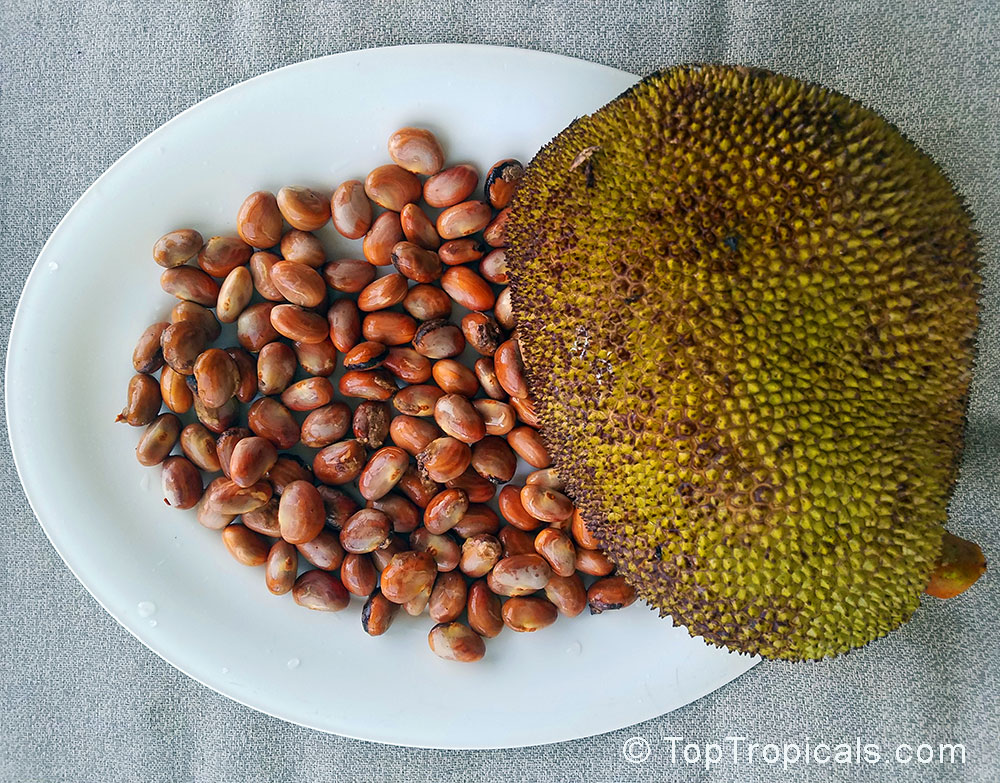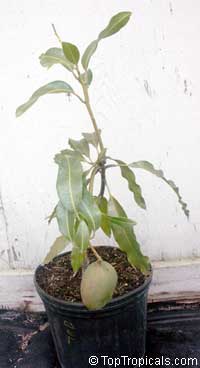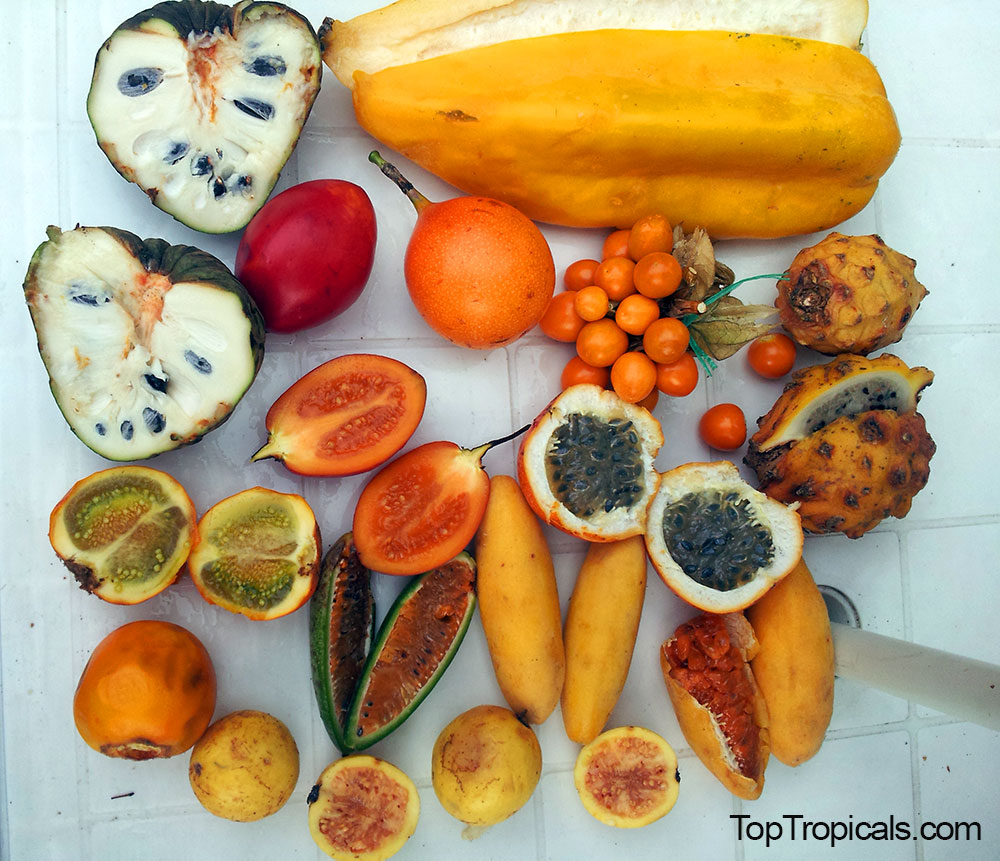Date:
Information on new exotic fruit
variety:
Artocarpus x integer (Jackfruit x Chempedak), Cheena cv.
TopTropicals
FRESH SEEDS! Grow exotic Chempedak from seeds and you will have the trees for only $1 each!
Check out a short video of the opened fruit.
Cheena is a natural hybrid between jackfruit and
chempedak. Comes true from seed.
This highly recommended variety has grown in TopTropicals
garden from a seedling of Cheena (Jackfruit x Chempedak)
that fruited within 3 years from planting. The fruit
(20-25" size) is probably the best we ever tasted! It is
super sweet, crunchy and has a rich, pleasant, excellent
flavor. It has very little latex which makes it easy to
handle when cutting up. The tree produces at the very base
of the trunk, so you can prune it as short as you want.
Our tree survived light frosts as well as 48 hours of 3ft
flooding, with no damage!
The tree has an open, low and spreading growth habit and
can be maintained at a height and spread of 8 ft with
annual pruning. It is very easy to grow and is not as cold
hardy as we thought for a Jackfruit x Chempedak types of
plants. The only two recommendations are - good fertilу
soil with a high content of compost and regular watering.
Cheena is a consistent producer. The fruit is up to 5 lbs,
long, narrow and uniform in size and shape. The skin is
green, with blunt spines that yellow and open slightly
upon maturity.
Check out Chempedak Cheena seeds - FRESH - FRESH -
FRESH
Check out Chempedak Cheena plants - special
offer $30 OFF!






